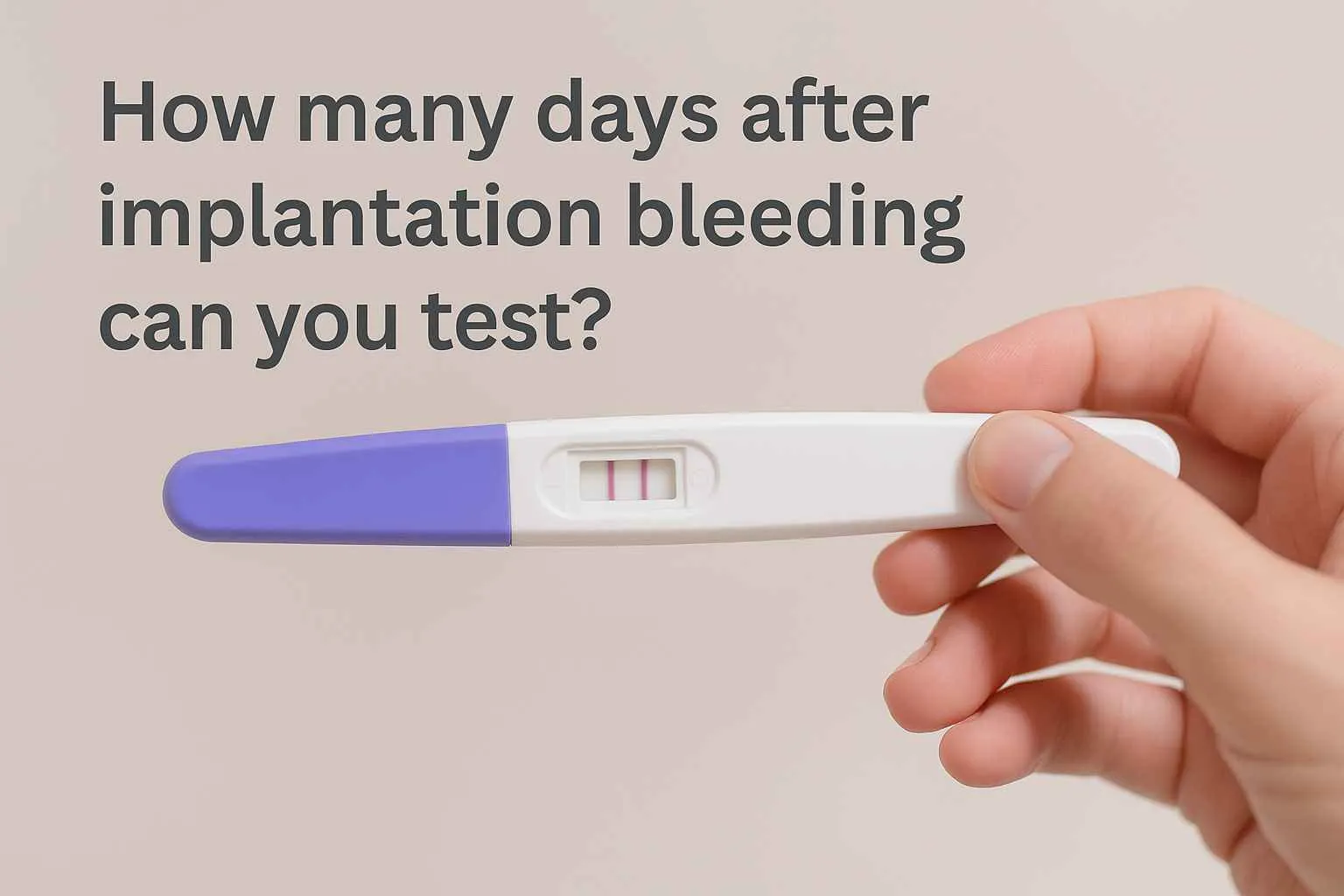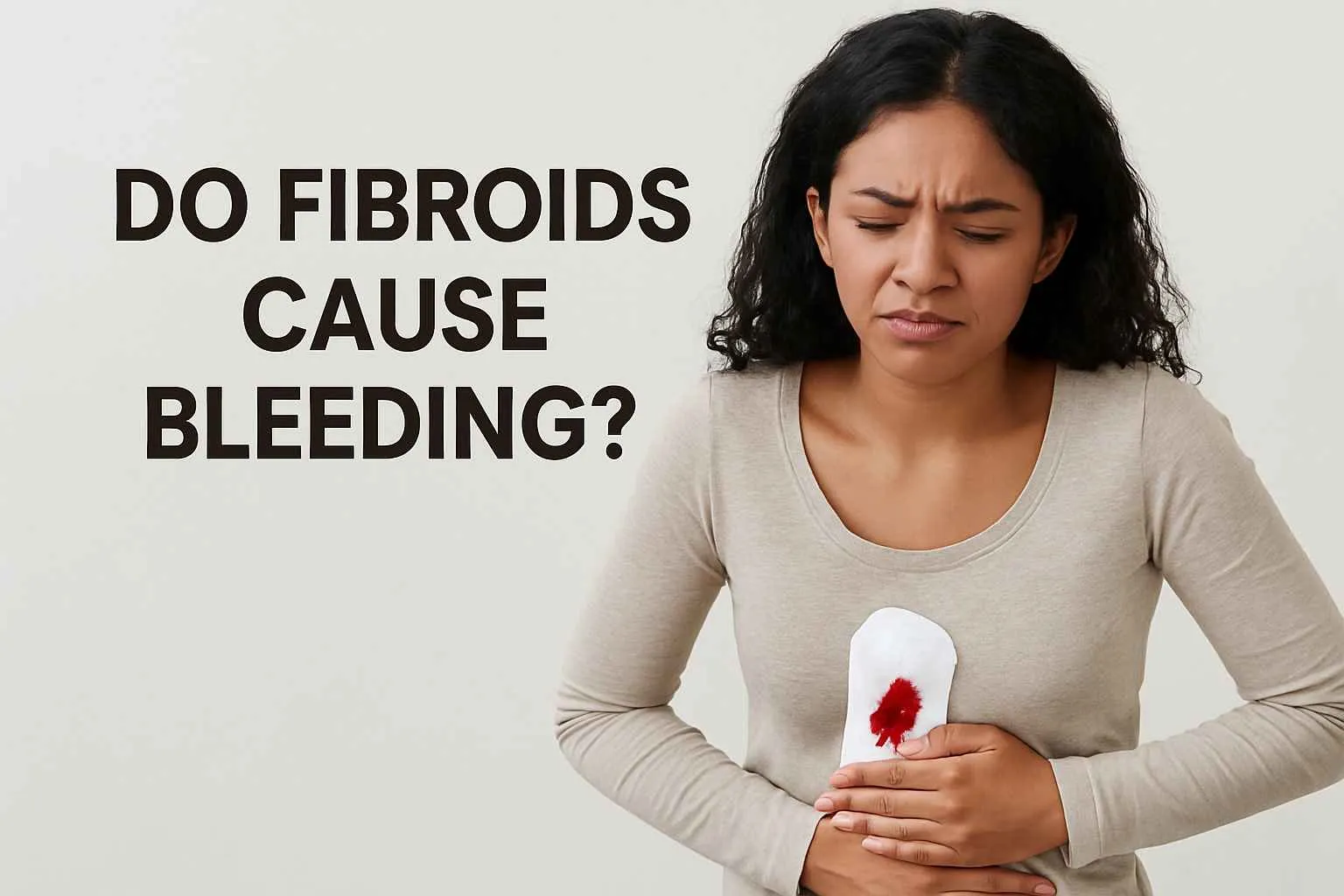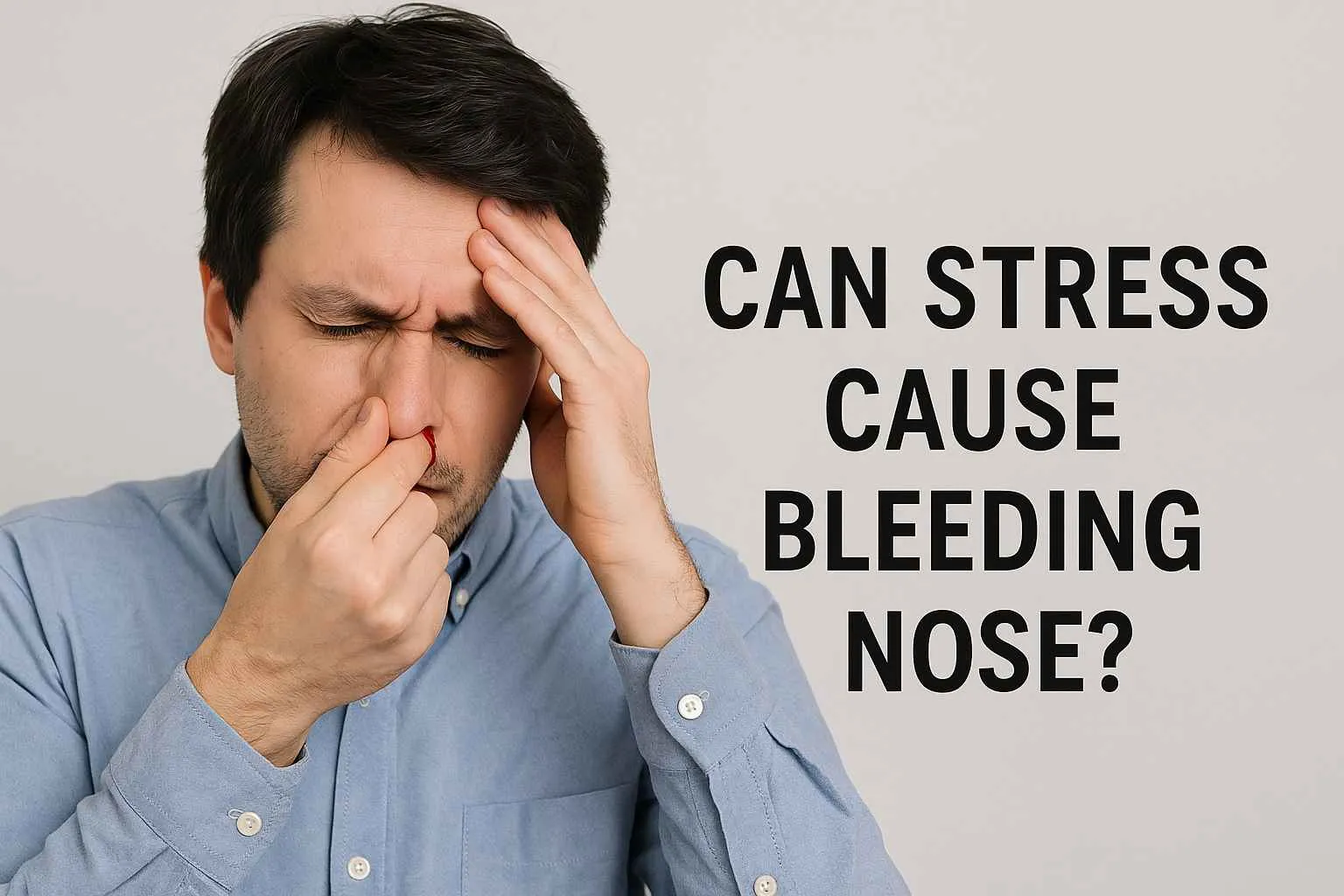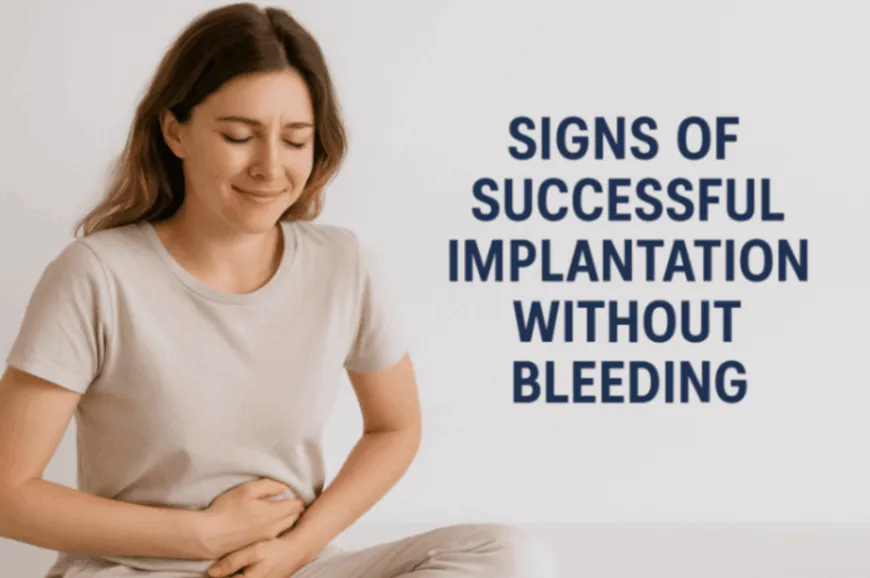Are you experiencing an unexpected vaginal spotting and wondered why it's happening? While hormonal imbalance and birth control methods are common causes, stress may be the hidden trigger, affecting your cycle in surprising ways. So, if you are asking, "Can stress cause spotting?", you are at the right place. In this article, we will explore how stress messes with your hormones, when you should worry, and what you can do to regain control over your cycle.
Can Stress Cause Spotting in Women?
Yes, stress can lead to spotting or light bleeding in some women that occurs outside of the regular period. It can significantly affect the menstrual cycle through several psychological and physiological mechanisms.
How Does Stress Cause Spotting?
1. Hormonal Imbalance
-
Research shows that high stress levels can lead to the release of hormones, like cortisol and progesterone. This, in turn, can interrupt the normal function of the hypothalamus-pituitary-ovarian axis (which is responsible for regulating the reproductive system).
-
This disruption can lead to irregular spotting or bleeding. In case of severe or prolonged stress, it may result in no periods.
2. Weakened Immune Function
-
Prolonged stress can impact immune function, which makes it challenging for the body's defense system to fight against infections that can lead to spotting.
-
For instance, stress can raise the chances of bacterial vaginosis, which can cause spotting.
3. Restricted Blood Flow to the Uterus
-
During stress, the blood vessels become tight, which can decrease the flow of blood to the uterus.
-
This change in blood flow, in turn, can cause spotting or irregular bleeding.
4. Physiological Effects (Lifestyle Disruptions)
-
Stress can affect diet, sleep, and exercise, which can negatively affect the production and regulation of hormones such as progesterone and estrogen.
-
This hormone imbalance can cause the uterine lining to shed irregularly, resulting in spotting.
Signs That Spotting Is Stress-Related
If your spotting coincides with high-stress events (like exams, travel, work deadlines, or emotional trauma), it’s likely related to stress. Other stress-related symptoms may include:
-
Insomnia or restless sleep
-
Trouble concentrating
-
Changes in appetite
-
Fatigue and low energy
-
Muscle aches
- Digestive issues
-
Low libido or sexual dysfunction
- Mood changes or irritability
Other Potential Causes of Vaginal Spotting
While stress is one possible reason, many other health conditions and lifestyle factors can also lead to spotting. Here are some other common causes to consider:
-
Hormonal birth control, like birth control pills, intrauterine devices (IUDs), shots, patches, implants, and rings
-
Early pregnancy or miscarriage
-
Infections such as sexually transmitted infections (STIs)
-
Uterine fibroids or polyps
-
Gynecological health issues, like Polycystic ovarian syndrome (PCOS) and endometriosis
-
Bleeding disorders or blood clotting medications
-
Hormone-related conditions such as diabetes or thyroid disease
-
Weight gain or loss
-
Endometrial (uterine) or cervical cancer
How Long Does Stress-Related Spotting Last?
Spotting from stress typically lasts for a few days or one week. In most cases, stress-induced spotting can subside within 1 or 2 weeks. But, it can sometimes last for a prolonged period, depending on the following factors:
-
Stress levels: The more severe the stress is, the higher the chances of spotting for a longer period.
-
Hormonal sensitivity: Women who are more prone to experience hormonal fluctuations due to stress are likely to get prolonged spotting.
-
Underlying health conditions: Issues like PCOS, fibroids, or thyroid imbalance can worsen stress-related spotting.
Important: If spotting lasts more than two weeks, recurs frequently, or is accompanied by pain, fever, or unusual discharge, consult a doctor immediately.
6 Ways to Manage Stress-Induced Spotting Naturally
Consider these tips to reduce your stress levels, which can prevent spotting:
1. Practice Stress Reduction Techniques
-
Breathing exercises, yoga, and meditation are the best stress-relieving techniques that can relieve stress and ease relaxation.
-
These help by lowering stress hormones such as cortisol.
2. Get Enough Sleep
-
The lack of sufficient sleep can lead to increased stress levels, which can disrupt hormonal balance.
-
So, get a good sleep of 7-9 hours each night to maintain hormonal balance and thereby relieve stress.
3. Exercise Regularly
-
Exercising regularly can alleviate stress levels, which contributes to hormonal imbalances.
-
So, practice exercises such as brisk walking, cycling, and jogging for 30 minutes daily, which can make a huge difference.
4. Follow a Healthy Diet (Eat for Hormone Health)
-
Add whole grains, lean proteins, fruits, healthy fats, and vegetables to your diet, as they help support hormone balance, reduce inflammation, and promote overall well-being.
-
This can manage hormonal imbalance and irregular menstrual cycle, which prevents stress-related spotting.
5. Avoid Smoking and Limit Alcohol
-
A study reports that prolonged alcohol intake and smoking can lead to the release of stress hormones like cortisol, leading to stress.
-
Reducing or quitting these substances can help manage stress and spotting.
6. Prioritise Self-care
- Do what helps you unwind. Read, take a warm bath, and enjoy nature. Reducing stress resets your hormonal rhythm and improves menstrual health.
-
These practices can help you relax, recharge, and thus manage stress.
Note: If spotting is heavy or persists, consult a gynecologist to rule out the exact cause.
When to See a Gynecologist?
Occasional spotting because of stress is not usually a matter of concern. However, heavy and persistent spotting needs medical attention, especially if you:
-
Have spotting that lasts for more than 7-10 days, or it often occurs between your periods
-
Feel overwhelmed, anxious, or depressed
- Are pregnant or think you may be
-
Notice spotting after menopause
-
Experience other symptoms, such as changes in energy levels and weight
- Experience vaginal discharge that smells foul
Common Myths About Stress and Spotting
| Myth | Fact |
|
Spotting is a sign of pregnancy |
Though spotting can indicate early pregnancy, it can also occur because of stress, hormonal shifts, infections, or contraceptive changes. |
| Stress-related spotting is always severe. | Most cases resolve with stress reduction and healthy lifestyle changes. |
| Spotting always occurs with pain | Many women may experience no pain or discomfort with spotting, especially if it's hormonal or stress-related, while others can have mild cramps. |
| Spotting is always considered a gynecologic problem | Spotting can stem from lifestyle, stress, or even digestive issues, though it's always wise to rule out medical causes. |
Final Thoughts
So, can stress cause spotting? Well, yes, stress can indeed lead to spotting by interrupting hormonal balance, preventing blood flow to the uterus, reducing immune function, and causing physiological effects. Though it's not a severe issue, it is crucial to keep a watch on your health. If spotting becomes heavy or persists for longer days along with other symptoms, it should never be ignored. Prioritize stress management, nourish your body, and don’t hesitate to seek medical advice when needed. Your body’s signals deserve attention and care.
अक्सर पूछे जाने वाले प्रश्नों
What does stress spotting look like?
It is light bleeding which appears as pink, brown, or red blood seen in your underwear or after using the washroom. It is less than the normal blood flow during the period and may come along with other discharges.
How to stop spotting immediately?
Apply a gentle pressure to your vaginal area using a pad or tampon, take OTC medicines to reduce prostaglandin levels, which help alleviate bleeding, or consider tranexamic acid that helps stop bleeding.
Can dehydration cause spotting?
Yes, by reducing blood volume, dehydration can lead to low blood flow to the uterus. This can cause the uterine lining to shed, which results in spotting.
Why do I have spotting only when I wipe after urinating?
This can be due to other causes, such as urinary tract infection (UTI), which contribute to bloody urine.
लेखक






